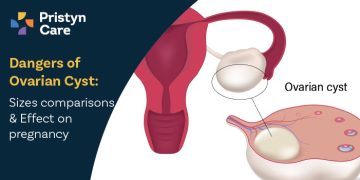The feeling of terminating a pregnancy can feel overwhelming. And, it’s completely fine. Just take a deep breath Read More...
There are a lot of misunderstandings regarding the distinction between the abortion pill and the morning-after pill Read More...
In the year 2023, the International Society of Aesthetic Plastic Surgery reported that there were approximately 1 Read More...
Gynecomastia, often called “man boobs”, is a benign condition marked by the enlargement of male
breast tis Read More...
Many women experience chronic pelvic pain, heavy bleeding, or reproductive challenges due to Fibroids, Adenomyosis, Read More...
A hysterectomy is a surgery to remove the uterus. It is usually recommended only when other treatments fail or when Read More...
Ovarian cysts are fluid-filled sacs that form on or inside the ovaries. In fact, about 20% of women develop an ovar Read More...
At Pristyn Care in Delhi, we understand that surgical issues affecting the digestive tract, urinary system, blood v Read More...
At Pristyn Care in Bangalore, we understand how conditions affecting your digestive tract, urinary system, blood ve Read More...
At Pristyn Care in Hyderabad, we understand how conditions affecting the digestive tract, urinary system, blood ves Read More...
Malaria and dengue are two mosquito-borne diseases and have shown a significant rise in cases recently. These can c Read More...
Losing weight can often feel stressful, particularly when navigating the flood of contradictory online advice and d Read More...























